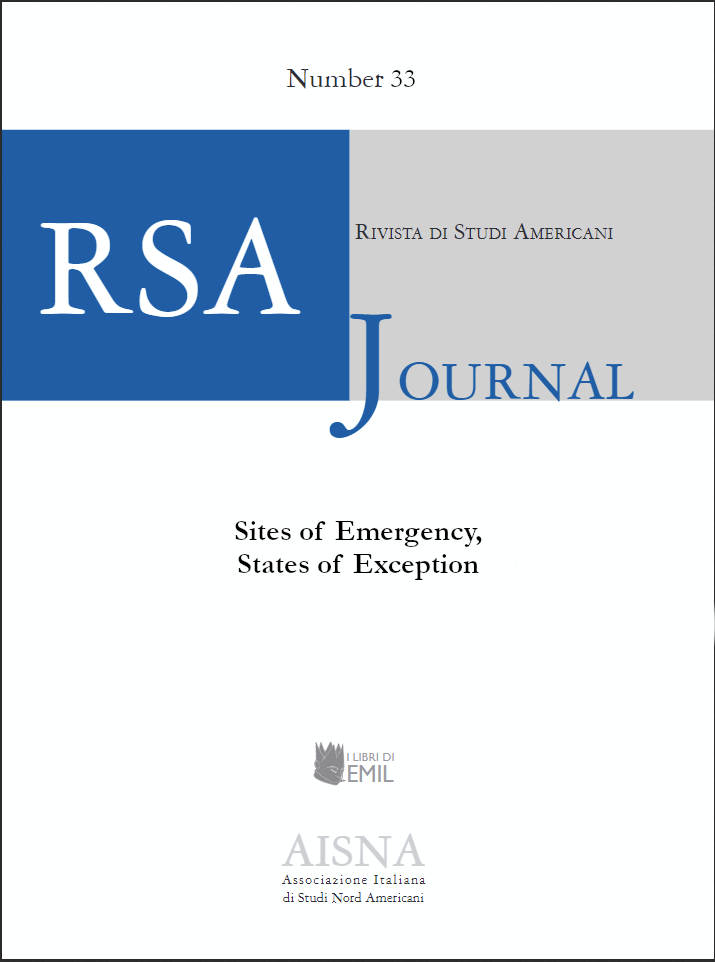Assessing a Poetics of the Lyric with Claudia Rankine and Jonathan Culler
DOI:
https://doi.org/10.13135/1592-4467/8434Keywords:
lyric, poetics, imaginationAbstract
From the publication of her first poetry collection Nothing in Nature Is Private (1994) to the successful reception of Citizen: An American Lyric (2014) twenty years later, Claudia Rankine has both engaged with established models of the lyric genre and altered the genre’s parameters to suit her own ethical purposes. Mainly drawing on Jonathan Culler’s Theory of the Lyric (2015), I argue that by creating a dialogue between his approach to the lyric form and lyric reading, and Rankine’s thrust towards formal experimentation, we can fully appreciate the surprising impact that the lyric has on readers. Moreover, we can trace comparisons between poems from different times and identify their foundational points of contact. In this light, the attention both Culler and Rankine give to the potential socialrole of poetics derives from their shared trust in the powerfully intriguing language of lyric to broaden one’s imagination. However, whereas Culler identifies the capacity of the lyric to inform the imagination with its use of unordinary language and indirectionality, Rankine’s Citizen fulfills its imaginative endeavor by directly calling upon the readers’ participation in the text.
Downloads
Published
Issue
Section
License
RSAJournal will apply a CC BY 4.0 license to all its contributions starting with issue 37 (2026). Previous issues are licensed under a CC BY-NC-ND licence.





